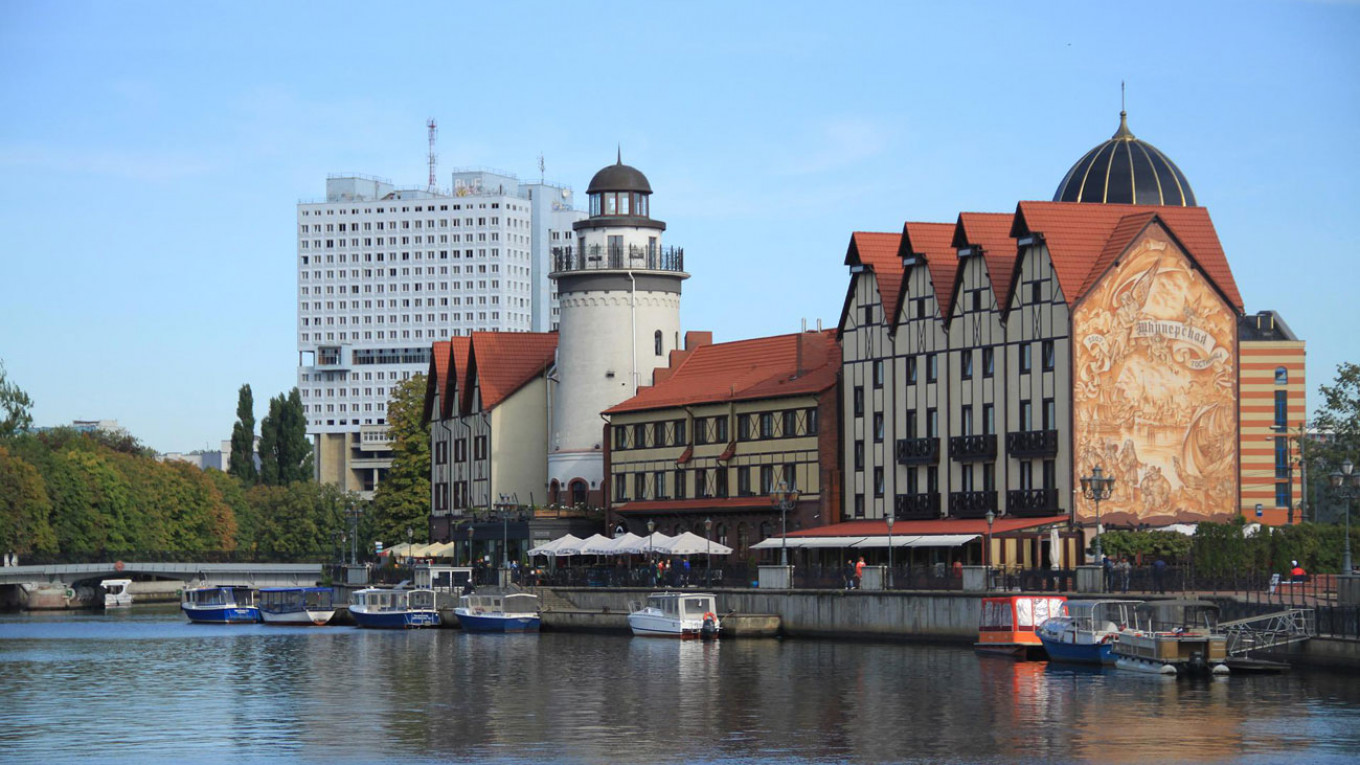A wave of panic buying spread across the Kaliningrad region after a rail blockade imposed by neighboring Lithuania on Saturday threatened to isolate Russia’s strategic Baltic exclave.
One unverified video shared Sunday showed anxious shoppers loading up on cement at a hardware store in the outskirts of the regional capital.
“On the first day [of the ban], everyone ran to buy everything en masse,” Pavel Tatarintsev, a Kaliningrad resident, told The Moscow Times.
“But now everyone has calmed down and are waiting to see how the situation will end.”
Sandwiched between NATO members Poland and Lithuania, Kaliningrad is home to Russia’s Baltic Sea Fleet, as well as an arsenal of nuclear-ready Iskander missiles.
But with no ground connection to the mainland, the region relies on rail links through the Baltic states for the transportation of goods and services.
"We consider this to be a most serious violation ... of the right to free transit into and out of the Kaliningrad region," said Kaliningrad Governor Anton Alikhanov in a video posted to messaging app Telegram on Saturday.
According to Alikhanov, the ban will affect up to 50% of the products that are imported and exported from Russia through Lithuania.
Vilnius’ decision was a delayed implementation of a ban on the import of goods to Russia that was imposed by Western countries in response to the invasion of Ukraine in late February.
Kremlin spokesman Dmitry Peskov told reporters Monday that Lithuania’s decision was “illegal.” Senator Andrei Klimov threatened that Russia would look to resolve the issue “by any means,” according to business daily Kommersant.
As well as building materials, consumers also rushed to buy gas, fearing that pipelines that run from Russia to the exclave would be cut off.
Addressing Kaliningrad residents Saturday, Alikhanov said energy supplies would last until at least Aug. 10, and urged people not to panic buy.
"I ask you to remain calm. My team and I are engaged in solving all the problems that arise in our region, and we will definitely cope with everything,” Alikhanov said.
The bulk of Russian exports to Kaliningrad are transferred via rail lines between the exclave and mainland Russia, meaning that Russia will now be forced to increase its air and sea shipping traffic to transport sanctioned goods.
While Moscow had been preparing for such a rail blockage, the restrictions are still likely to cause disruptions and temporary shortages, according to sanctions expert Dionis Cenusa at Lithuania’s Eastern Europe Studies Center.
“[Supplying goods by sea] could lead to delays and shortages respectively, at least in the short term until the new logistics chains are fully operational," Cenusa said.
Two vessels currently ferry goods between Kaliningrad and St. Petersburg, and seven more will be in operation by the end of the year, Alikhanov said in a video message Saturday.
This is not the first time Kaliningrad has felt pressure from the Western response to the war in Ukraine.
The European Union’s ban on Russian planes earlier this year meant planes flying between Kaliningrad and Russia have been forced to reroute over the Baltic Sea, adding at least 40 minutes to flight times.
Alikhanov did not immediately respond to a Telegram message from The Moscow Times about how the region intends to overcome the problems brought about by the rail ban.
Despite official reassurances, many locals fear that the rail blockade could mean not only shortages of certain key goods, but also accelerating inflation.
“People are concerned that due to the complexity of logistics, the prices of goods will rise,” said Tatarintsev. “Kaliningrad has changed just like the whole country.”
A Message from The Moscow Times:
Dear readers,
We are facing unprecedented challenges. Russia's Prosecutor General's Office has designated The Moscow Times as an "undesirable" organization, criminalizing our work and putting our staff at risk of prosecution. This follows our earlier unjust labeling as a "foreign agent."
These actions are direct attempts to silence independent journalism in Russia. The authorities claim our work "discredits the decisions of the Russian leadership." We see things differently: we strive to provide accurate, unbiased reporting on Russia.
We, the journalists of The Moscow Times, refuse to be silenced. But to continue our work, we need your help.
Your support, no matter how small, makes a world of difference. If you can, please support us monthly starting from just $2. It's quick to set up, and every contribution makes a significant impact.
By supporting The Moscow Times, you're defending open, independent journalism in the face of repression. Thank you for standing with us.
Remind me later.







